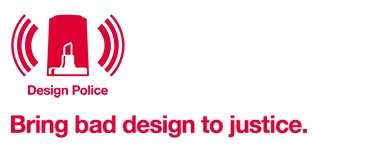Of course this is a post written under the influence of some major "pissed-off"ness because we lost a major pitch for which we worked really hard and naturally you cannot but be a sore loser. But more than that this is a realization of almost 8 months of in-crisis pitching - not just for us but for our ATL sister agency and also some half dozen other agencies we are friendly with, where we have seen the following repeat itself enough to become a pattern.
1. most in-crisis pitches are run by procurement teams [secretly meaning 'we're only interested in the money']
2. most in-crisis pitches have EXACTLY the same format: request for credentials, request for offer made of CVs and creative plus money. lots of useless paperwork, because participating agencies project the ideal team onto all RFOs and have a standard credential they send to everyone.]
3. no face-to-face unless you get picked to be among the few going to stage final
4. no debrief unless you really ask for it and then whatever gets discussed then gets emailed to everyone for fairness reasons
5. one hour for presentation
6. humongous brief with 70% of the qualification criteria going to.... financial :D. Basically testing to see if you're willing to do shitloads of work for no money.
But what gets to me most, aside from the heartlessness of this process is that final letter, where they tell you that you did not qualify. Thanks for playing but you suck, and we will not even take the time to tell you why. You may have prepared a 300 page presentation for us, which you printed in 4 copies because the RFO asked you to - yeah, we print layouts of online banners ... figure that!, but you do not deserve more than the standard letter of 'thanks but no thanks' because we were too busy to really understand why we picked someone else.
And while I understand the power-position in which everyone in procurement is these days, what with the crisis and everyone willing to do almost anything to get a budget, I think that somewhere in the brand management team someone should realize that this is not the way to handle what is, by all accounts, the relationship with your most important partner: the ad agency. Even when you DO NOT pick them, the point is not to treat them like they're nobody. Because sometimes the winning one happens to be crap, and maybe you want to drop them and move on to the runner-up. And if the runner up think you're basically heartless bastards, you're down to another RFO process. And this is not "not nice", but, in terms procurement can understand, it's NOT EFFICIENT.
LATER UPDATE: I did call the company asking for more info. I got an email asking for my phone number. So at least they were decent, and tried but I still do not know why we lost.
In general, however, I notice from the comments that, what with the crisis and all, the majority view - 2 out of 3 comments :P - is that the factor called 'serendipity' no longer plays a part in agency-client relationships. Weirdly enough, I used to think the same until I realized that the clients where we did find the same wavelength tend to be the ones for which we work most efficiently, most enthusiastically and where we get the best results. I think agencies like W+K and, locally, Headvertising have made this kind of "human" treatment of partners a landmark of their business style and it's worked (don't you just envy
posts like these? :D)
BUT, having been bludgeoned over my stupid head by the true business people of this real world, with words like "standards, professionalism, process, transparency, streamlining, capitalism, money" I assume I am just a silly silly girl to think that writing to extra lines in the 10 reject letters is not a big deal and will take my silly silly ideas and put them to sleep for tonight :D
LATER LATER EDIT: Got a call from marketing person - not procurement, who was nice enough to explain why we lost but said they would never put in on record. Feels good to know we are good enough but not good enough at politics :D
LATER LATER LATER EDIT: funnily enough got an official email from the procurement person saying basically that "our creative approach" sucked salty balls of chocolate although we were cheap enough :D. So, there you have it: marketing says we are creative enough, procurement says we are cheap enough, yet we lost :D. it must be we're ugly or something

 Reviewed as "The main body of the book draws out all of the most cherished literary devices in writing and reexamines them for use in the short form. Dom urges writers to spend more time distilling the essence of meaning and emotion from their thoughts. Select tweets are used as examples, showing wonderful invocations of irony, sarcasm, suspense, awe, and humor. The mechanics of poetry are even explored in detail, with suggestions on how they can be applied to the short form." here
Reviewed as "The main body of the book draws out all of the most cherished literary devices in writing and reexamines them for use in the short form. Dom urges writers to spend more time distilling the essence of meaning and emotion from their thoughts. Select tweets are used as examples, showing wonderful invocations of irony, sarcasm, suspense, awe, and humor. The mechanics of poetry are even explored in detail, with suggestions on how they can be applied to the short form." here














